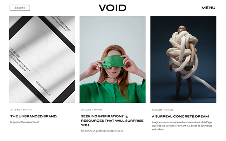- Nov 18, 2025
- 6 min read
Updated: 4 days ago

The best domain extension for your personal website depends on your goals, industry and personality. While .com remains the most popular choice for all types of websites, extensions like .me, .blog and .design offer personal, relevant and modern alternatives. When planning your website creation, what matters most is that your domain reflects you, your identity and your work.
TL;DR: best domain extension for a personal website
Choosing the right domain extension for your personal website can shape how people see you, how easy your site is to remember and how flexible your brand stays as you grow. Options like .com, .me, .blog, .site and .design each bring their own personality, trust level and best use.
Think about your site’s purpose, the impression you want to make, availability, long-term relevance, audience and budget. The right extension helps your site feel professional, personal or creative while avoiding headaches like confusion or high renewal costs.
Here’s what you’ll learn:
What a domain extension is and why it matters for personal sites
How different extensions fit different purposes
How to match your extension to your brand and audience
Tips for balancing availability, creativity and cost
How to pick an extension that grows with your personal brand
Secure your perfect domain in just a few clicks with Wix. Get everything you need in one place: business email, reliable hosting, SSL protection and full privacy. With 24/7 support and no hidden fees, getting your site live is simple and worry-free.
What is a domain extension?
A domain extension is the suffix at the end of a web address, think .com, .net, or .me.
It follows your chosen domain name (e.g., in johndoe.com, .com is the extension).

There are hundreds of domain extensions available today, including:
The most known and widely used: .com, .org, .net
Country codes: .us, .uk, .ca (sometimes these can only be used by companies and individuals in a specific country, sometimes they can be used by anyone regardless of location)
Specialty and newer extensions: .me, .blog, .design
Learn more:
Why domain extensions matter for your personal website
When learning how to create a personal website—for your online portfolio, blog, resume or side hustle—choosing the right domain extension is a key step. Your domain name defines your brand, but the domain extension (or TLD, top-level domain) adds credibility and reinforces that brand identity.
The extension you choose impacts your personal brand in multiple ways:
Credibility: Some extensions (like .com) are more trusted than newer or obscure ones.
Memorability: Familiar or meaningful extensions are easier to remember.
Branding: Creative extensions can reinforce your profession or personal identity.

The best domain extensions for personal websites
Here are the top domain extensions that are a good choice for personal websites, along with their main pros and cons.
Read also: Should you choose a niche-focused domain?
01 .com
.com is the most recognizable and trusted domain extension worldwide. Even if your website is for persona use, .com still lends it legitimacy.
Pros
Globally trusted and familiar
Easy to remember
Works for any type of site
Cons
Many names are already taken because this is such a popular extension
It's not necessarily so unique, especially for a personal site or brand
.co vs .com domains and how to get started

Pro tip: If your exact name is taken, try creative alternatives like johnwrites.com, johndoeonline.com or meetjohn.com.
02. .me
.me is officially a country code donation extension for Montenegro but it’s marketed globally for personal websites. It’s short, friendly and has a personal feel.
Pros
Great for personal brands
Memorable and expressive
Often available when .com is not
Cons
Not as widely trusted as .com
Can seem informal depending on the use
Examples: johndoe.me, contactme.me, aboutjohn.me
03. .blog
If your personal site’s primary goal is blogging, .blog is a descriptive extension that tells visitors what to expect.
Pros
Instantly communicates the purpose of your site
Content-friendly and relatable
Still relatively available and non competitive
Cons:
May not fit non-blog content if you branch out into something else
Not as familiar to mainstream users
04. .site
.site is a flexible, neutral extension that works for most types of personal websites, especially portfolios.
Pros
Widely available as non competitive
Flexible use cases
Short and generic
Cons
Less trusted than .com, potentially
Can feel impersonal or generic
05. .design
If you’re building a creative portfolio, .design is a niche extension that helps make your domain name a statement about what you do. Pair it with a professional website design template and you’ll have a polished starting point inspired by portfolio websites.
Check out the new top level domains available on Wix and grab one that fits your idea.

Pros
Instantly tells users what you do
Adds creativity to your brand
Usually more available
Cons
Less familiar to some users
Not ideal if your career or business shifts later
06. .be
.be is a simple, modern domain extension that's bound to make your personal website stand out.
Pros
Short and simple
Often available
Cons
May lack clarity for personal use
May be harder for people to trust as its not often used
Ready to build your site? Start with free website templates or create it with a website designer—your brand, your way.
How to choose an extension that fits your personal site
Choosing the right domain extension for your personal website depends on what message you want to convey. Use these quick tips to narrow down your options:
Understand your site’s purpose
First things first: what’s the purpose of your website? A writer’s portfolio, a tech blog, a photography gallery and a freelance resume each have their own unique vibe.
Examples:
If your site is meant to look professional and universal, .com is the safest pick.
If your site centers on writing or content, .blog instantly sets expectations.
If you want your personality front and center, .me makes the domain feel personal and friendly.
If your work is visual or creative, .design communicates your craft before people even land on your homepage.
If your're planning to sell online, consider asking is .shop a good domain to use
What vibe does your domain extension give?
Your extension adds a subtle hint of context to your brand. A .com gives off a neutral professional vibe signaling reliability and a sense of establishment. A .me on the other hand feels personal and approachable making visitors feel like they’re connecting with a real person rather than just a website.
For creatives .design immediately communicates artistry and skill setting the tone for a portfolio or visual project. Meanwhile .site keeps things clean and minimal offering flexibility without attaching a specific expectation. This works well if your personal brand is broad or evolving.
Pick a domain extension people will trust
People trust what they recognize. The .com domain has decades of familiarity behind it, so if credibility is your priority it’s still the strongest choice. Newer extensions aren’t untrustworthy—they just aren’t as widely known. If your industry relies on trust (consulting coaching finance or tech), a familiar extension can make your site feel more reliable.
Get creative with your domain extension
Many personal names are already taken with .com. This might push you toward adding words or considering newer extensions. If "johndoe.com" is gone, alternatives like "johnwrites.com", "johnbydesign.com" or "johndoe.me" keep your identity intact without feeling forced. Newer extensions like .blog or .site also give you more room to get a clean short name.
Make sure your domain extension fits your budget
Domain extensions vary in price. Some are consistently affordable while others are more expensive because they're niche or premium. When building a long-term personal brand pick an extension you're comfortable renewing annually. Unexpected price hikes can be a headache especially for students freelancers or creators just starting out.
Choose a domain extension that grows with you
Your interests and career can change. A .design domain might be great if you’re a designer today, but if you later shift into strategy, writing or product work, a broader extension like .com or .site will keep your domain relevant. The goal is to pick something that won’t limit you in a few years.
Think about your audience when picking a domain extension
Some visitors instantly trust .com. Others, especially people in creative or tech spaces, appreciate modern descriptive extensions. If your work targets a specific community, pick an extension that feels native to that world.
Best domain extension for a personal website FAQ
Is .com always the best choice?
Not always. .com works well for any type of site, but it can be hard to find an available name. If your name or brand is taken, using a newer extension like .me or .site gives you more flexibility.
Which domain extension is best for a portfolio?
For creative portfolios, .design is a strong option because it instantly communicates what you do. .me and .site also work well for personal projects. You can check out portfolio examples online to see how these domains are used in real-life creative sites, helping you get inspiration for your own portfolio.
Are personal domain extensions like .me or .blog professional?
Yes. They may not have the universal recognition of .com, but they can feel modern, personal and relevant to your site’s purpose.
How do I choose the right domain extension for my website?
Think about your goals and your audience. Pick something that feels authentic to your brand, is easy to remember and matches the type of content you’re sharing.
Can I change my domain extension later?
You can register a new domain and point it to your site, but changing later can cause confusion. It’s best to choose an extension you’re confident in from the start.













